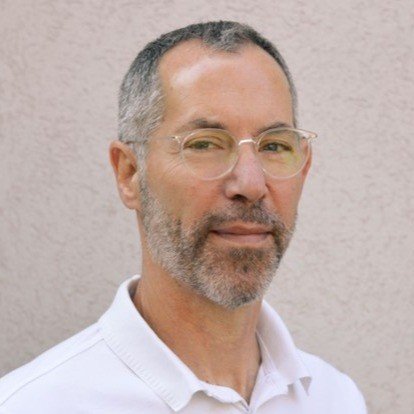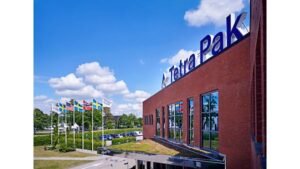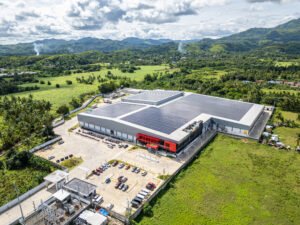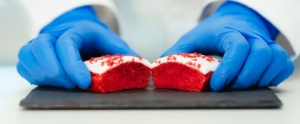Wednesday, 28 January 2026
Pluri’s Cell-Based Coffee Revolution Begins in Chiapas
Ami Herman, CEO of Coffeesai The global coffee industry is confronting rising challenges from climate change and shrinking farmland, to soaring consumer demand. To address these pressures, biotechnology company Pluri…

Ami Herman, CEO of Coffeesai
The global coffee industry is confronting rising challenges from climate change and shrinking farmland, to soaring consumer demand. To address these pressures, biotechnology company Pluri has entered the cell-based coffee sector through its subsidiary Coffeesai, which is developing sustainable coffee products in partnership with the Instituto del Café de Chiapas (INCAFECH) in Mexico. Using Pluri’s proprietary 3D cell expansion technology, the initiative aims to produce authentic coffee without traditional farming or deforestation. In an interview with NUFFOODS Spectrum, Ami Herman, CEO of Coffeesai, discusses the motivation behind this innovation, its sustainability potential, and how Pluri plans to scale cell-based coffee globally.
Pluri is leveraging Coffeesai to develop cell-based coffee products in Chiapas. What motivated Pluri to enter the cell-based coffee sector, and how does this align with the company’s broader mission in cell-based solutions?
At Pluri, we recognised that the coffee industry is facing a critical moment — from shrinking arable land and rising global demand to the mounting pressures of climate change. Traditional coffee cultivation simply can’t keep pace with the world’s appetite for coffee without further straining our environment and agricultural resources.
That’s why we’re leveraging our proprietary 3D cell expansion technology through Coffeesai to develop cell-based coffee products. By applying cell-based science to coffee, we can produce authentic coffee compounds sustainably — without the need for large-scale farming, deforestation, or dependency on unpredictable weather.
This move perfectly aligns with Pluri’s broader mission: to harness cell-based technology to create scalable, sustainable solutions that address some of humanity’s most pressing challenges — from food security to health and environmental resilience.
The collaboration with INCAFECH follows a three-phase roadmap, from cell line development to commercial-scale manufacturing. Could you walk us through the key milestones and expected timelines for each phase?
The collaboration between Coffeesai and the Instituto del Café de Chiapas (INCAFECH) follows a strategic three-phase roadmap designed to de-risk commercialisation and accelerate the path to market for cell-based coffee:
Phase 1: Cell Line Development
Objective: Establish a bank of coffee cell lines using Coffeesai’s proprietary technology.
Activities: Tissue sampling, cell isolation, and validation of growth protocols.
Timeline: Preparations are at an advanced stage
Milestone: Verified, scalable coffee cell lines ready for biofarming.
Phase 2: Pilot-Scale Biofarming
Objective: Deploy Coffeesai’s 3D bioreactor in Chiapas to validate scalability and process robustness.
Activities: Cultivation of coffee cells in controlled bioreactor environments
Yield optimisation and sensory testing
Downstream processing, including:
Drying of harvested biomass
Roasting to develop flavour profiles
Grinding to produce a final product ready for brewing
Timeline: Expected to begin shortly after Phase 1 completion, within the next few quarters.
Milestone: Demonstrated feasibility of consistent, high-quality cell-based coffee production.
Phase 3: Commercial-Scale Manufacturing
Objective: Explore full-scale facilities for industrial production.
Activities: Site selection, infrastructure development, regulatory approvals, and potential joint ventures.
Timeline: Subject to definitive agreements, likely to commence after successful pilot validation.
Milestone: Operational manufacturing hub capable of producing cell-based coffee at scale for domestic and global markets.
Sustainability and supply chain resilience are central to Pluri’s vision. How does cell-based coffee production address environmental challenges and support a more stable, predictable output for the coffee industry?
Sustainability and supply chain resilience are at the heart of Pluri’s mission, and cell-based coffee directly supports both. Traditional coffee production is increasingly vulnerable — shrinking farmland, volatile climates, pests, and unpredictable yields are threatening both quality and supply. Cell-based coffee turns that uncertainty into stability.
By cultivating coffee cells instead of coffee crops, we can produce consistent, high-quality coffee year-round, independent of geography, weather, or seasonal cycles. This approach dramatically reduces the need for water, land, and chemical inputs while eliminating deforestation and agricultural waste.
In essence, cell-based production offers the coffee industry something it’s never had before: a sustainable, predictable, and scalable alternative that safeguards both the planet and the livelihoods tied to coffee.
What role does Coffeesai’s proprietary 3D bioreactor technology play in scaling coffee cell cultivation, and what challenges has Pluri faced in adapting cell-based technology to a large-scale beverage product?
Coffeesai’s 3D Bioreactor Technology
Coffeesai uses Pluri’s proprietary 3D bioreactor to grow coffee cells efficiently and at scale. This system, originally designed for cell therapy, enables high-yield, customizable coffee production with minimal land and water use.
Challenges in Scaling Cell-Based Coffee
Pluri faced several hurdles:
Cost and Infrastructure: Adapting biotech systems to food-grade production required redesign for affordability.
Regulatory & Consumer Acceptance: Ensuring food safety and market readiness was key.
Process Adaptation: Transitioning from sterile therapeutic environments to scalable food production demanded innovation.
How does Pluri envision creating value for local stakeholders in Chiapas, including farmers, employees, and the broader community, through this initiative?
Pluri and Coffeesai envision creating value for local stakeholders in Chiapas through its Coffeesai initiative in several key ways:
Empowering Farmers: By partnering with the Instituto del Café de Chiapas, Pluri aims to strengthen the future of local coffee growers through access to advanced biotechnology and sustainable cultivation methods.
Job Creation: The deployment of Coffeesai’s 3D bioreactor technology and the establishment of pilot and commercial-scale facilities are expected to generate new employment opportunities in the region.
Community Development: Coffeesai positions Chiapas as a global hub for coffee innovation, blending local tradition with cutting-edge science. This enhances regional pride and long-term economic resilience.
Environmental Sustainability: The cell-based approach drastically reduces land and water use, helping preserve Chiapas’s natural resources while maintaining high-quality coffee production.
Looking ahead, what is Pluri’s strategy for commercialising cell-based coffee globally, and are there plans to expand into other beverages or food applications using similar technology?
Pluri’s commercialisation strategy is built on collaboration. We partner with industry leaders who bring deep expertise in their respective sectors — whether that’s coffee, cacao, meat, or beyond — while we provide the same powerful, proprietary cell expansion technology that drives all our ventures. This model allows us to efficiently enter diverse industries and tailor our solutions to their specific needs without reinventing the wheel each time.
For cell-based coffee, we’re focused on scaling production in partnership with established coffee experts to ensure that the product meets both sustainability goals and consumer expectations for quality and flavour. By combining scientific innovation with industry know-how, we can accelerate commercialisation and bring sustainable coffee to market faster and at scale.
As for other beverages or food applications, the sky is truly the limit. Our technology isn’t bound to one ingredient or one industry. Any sector that can benefit from sustainable, scalable cell expansion — from foods to wellness to agriculture — is within reach.
Shraddha Warde
shraddha.warde@mmactiv.com
Technology
Capel Marron Farm boosts Australia’s premium food investment credentials
Jan 28, 2026 | Australia
Tetra Pak invests €60Mn in owned pilot plant to advance paper-based barrier technology development
Jan 27, 2026 | Company News
Jollibee Group inaugurates VisMin Commissary in Philippines to support regional expansion
Jan 22, 2026 | Company News
Food Testing
NSF launches retail food safety audit program in ASEAN and Australia
Jan 19, 2026 | Australia
Bringing PFAS testing to the point of need
Jan 16, 2026 | Australia
IMCD opens a Food & Nutrition Laboratory in Cologne
Jan 08, 2026 | Company News
More Popular
Ready-to-stir BLG ingredient offers patient-friendly solution for medical nutrition
Jan 28, 2026 | Company News
Sparkling Ice LIFE SAVERS collab brings four new candy-inspired flavours
Jan 28, 2026 | Beverages
Acker embarks on new era across Europe & Asia with launch of Acker Wine Merchant in Singapore
Jan 28, 2026 | Beverages






